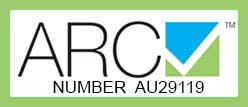A sad but true consequence of climate change is there’s now an increased risk of bushfires in Melbourne and Geelong. Here’s our useful guide on what to do with your air conditioner, during and after a nearby fire, to protect your health, your home and the life of your unit.
It’s well worth bookmarking this post, just in case you ever need it.
A word of warning on evaporative air conditioners during bushfire season
It’s important to say straight up, that we recommend two separate courses of action depending on which type of air conditioning unit you have installed at home.
Ducted refrigerated and split systems can continue to be used during a nearby property or bushfire, so our advice later in this blog focuses on an action plan to improve your air quality from smoke and soot, while protecting the life of your unit.
However, evaporative air conditioners are completely different ball game, so we’ll start here.
Australian fire authorities recommend that if you find yourself in the unenviable situation where smoke from a nearby fire is over your home, you must switch your evaporative cooler off to reduce the risk of embers starting a fire in your roof.
Why you must switch off your evaporative cooler during a bushfire, but keep filters wet!
Your evaporative cooler’s filter pads are highly combustible – having been made of cellulose. If they were to draw in sparks or embers from a nearby fire, and those filter pads were dry, they could catch fire.
Even the most experienced firefighters find it difficult to put out an evaporative cooler fire, which tends to burn through the roof before collapsing in on your house.
In the event of a nearby fire, here’s what the authorities say to do to your evaporative air conditioner:
- First up, you need to prepare by running your evaporative cooler to soak the filter pads.
- Once you notice smoke over your home, or you see that ash is starting to fall around the area, you must turn off your cooler.
- Some evaporative systems allow you to continue running water over the filter with the fan turned off. But if yours doesn’t, or in case of a power blackout, you’ll need to grab the garden hose and direct water onto the unit pad, to ensure it stays wet.
- Continue to check your roof and around your house for spot fires caused by embers.
For those with split and refrigerated reverse-cycle cooling systems
These type of systems are fine to run during a bushfire. In fact, since many air conditioner units recycle the air within your home with the filter, they actually protect the interior of your home from outside smoke.
Here’s what to do though if there’s a fire in your area:
- If you have a reverse-cycle system at home, switch it to recirculate mode, so that no air is drawn in from outside.
- For those who have a ‘Fresh Air’ function on their system, switch it off – since this again draws on outside, now smoke-filled air.
- You may want to consider investing in a HEPA filter, or other higher filtration option, for your system to cut the risk of smoke and soot contaminants entering your home.
After a bushfire in your area, it’s time to clean your cooling system
Your system will have picked up a lot of soot and contaminants from smoke in the fire.
It’s going to need a good clean – especially the filters – not only to ensure you are breathing clean air, but to make sure it’s not being clogged with debris that prevents it working efficiently.
If your aircon has to work harder, it will cost you in comfort levels, power bills and reduce the life of your system.
Not only should you clean your air conditioner – particularly its filters – from a health perspective, but also because a dirty air conditioner is an inefficient air conditioner. And an inefficient air conditioner will need to work harder to reach the cooling temperature you set for it. By working harder, it’s going to use even more energy – which will therefore add more to your electricity bills.
There’s never a bad time to give your air conditioner a spring clean, but if you’re lucky enough to have escaped a bushfire, it’s probably wise to thoroughly clean the filters and ensure you’re getting the freshest air you can.
For those with a ducted system, we have a handy blog here (https://www.plumheatcool.com.au/how-to-get-your-ducted-air-conditioner-summer-ready-and-save-money-in-the-process/) that takes you through the maintenance you can do on your system at home.
Call Plum Trade Services today
However, in the wake of a bushfire, you may want to call in the experts for a thorough clean and service, in which case Plum Trade Services is here for you in your hour of need.
For all your air conditioning servicing and repairs, or for installation of a new unit, please call our award-winning team for assistance today on (03) 8360 9622 in Melbourne, or (03) 5292 2219 in Geelong. Or, you can contact us via this link https://www.plumheatcool.com.au/contact-us/










